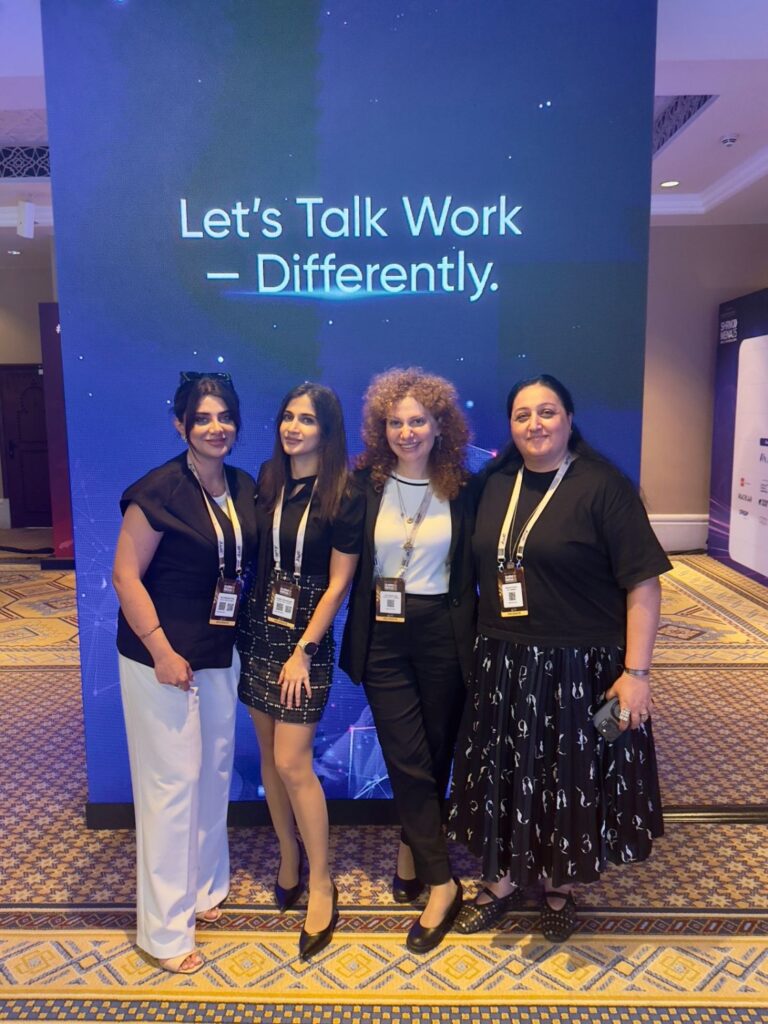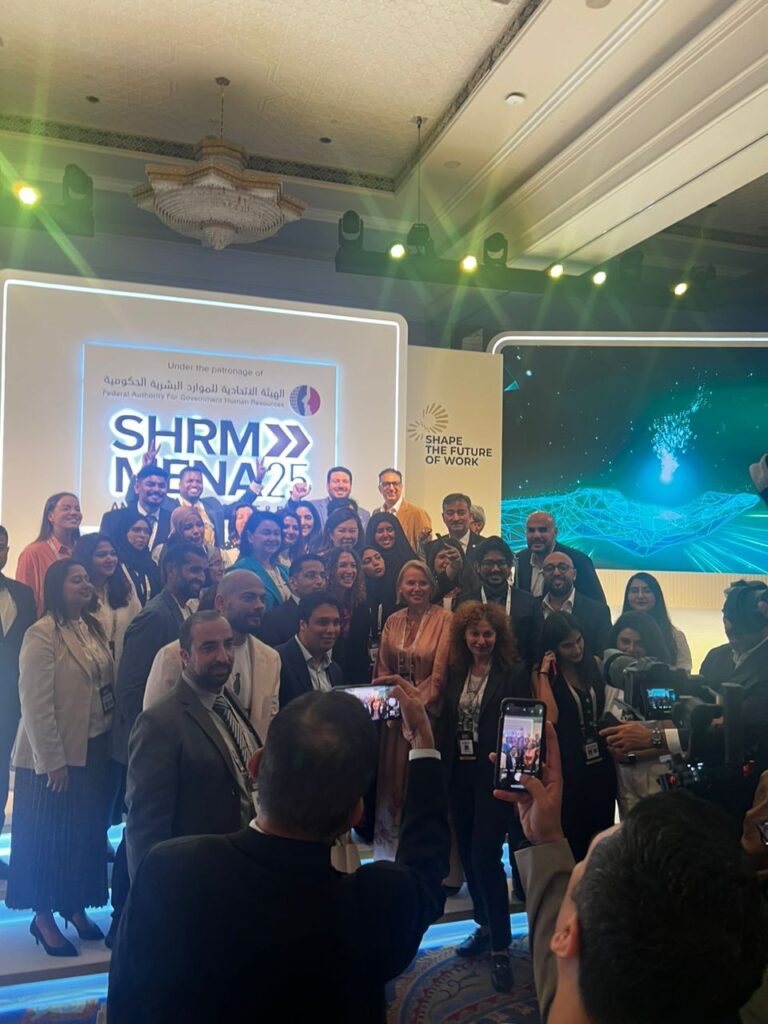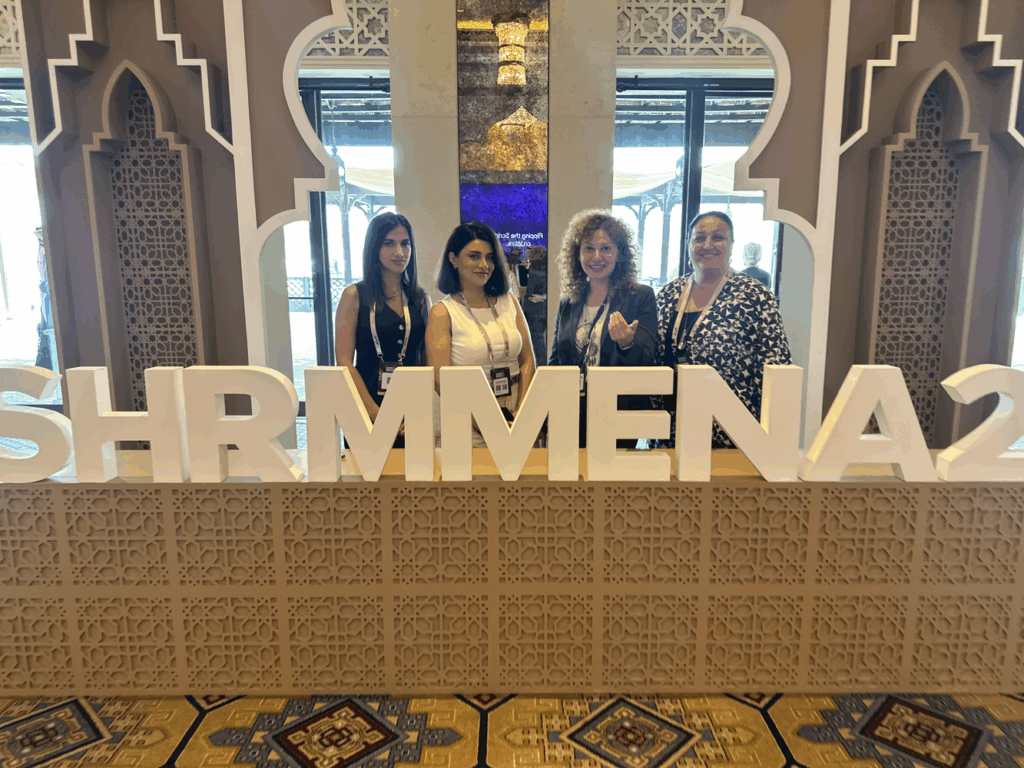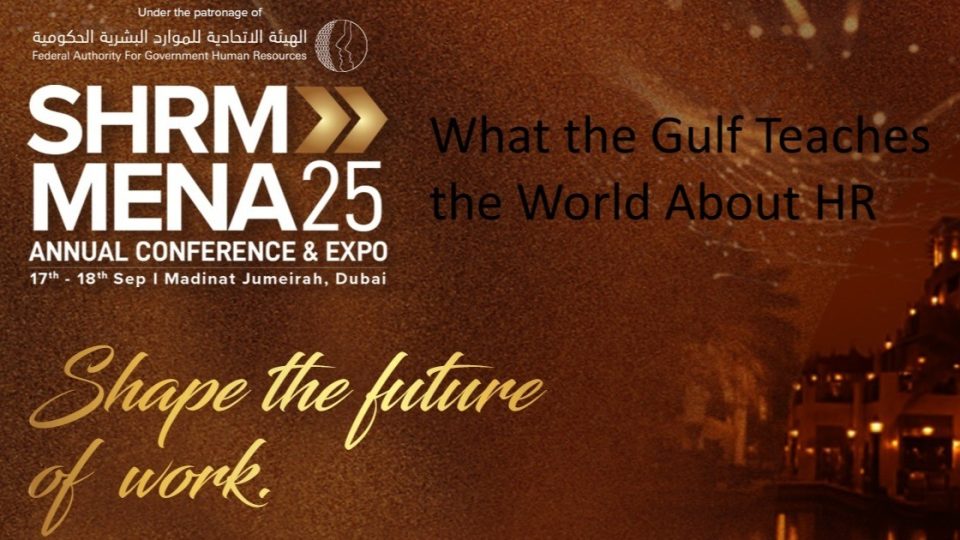Reflections from SHRM MENA 2025 Conference
When people look at the Gulf, they often see skyscrapers, mega-projects or oil wealth. But after spending two days at SHRM MENA 2025 in Dubai, I saw something different: a region quietly rewriting what HR can be and doing it in ways the world rarely notices. The number of attendees, the strong panel discussions, the inspiring keynotes and the overall flow of the event showed how important HR is for the region. Huge compliments to the organizers SHRM Mena for making it such a well-structured and valuable experience.

Here are the four HR lessons the Gulf brings to the global table, observations inspired by the sessions, speakers and conversations at the conference and expo place (which was really impressive this year).
1. Business and State as Co-Designers of HR Transformation
One of the strongest observations is how closely business and government work together in the Gulf. Unlike in many regions where policy and corporate agendas run in parallel, here they are deliberately working together.
The brightest example was the way the opening was constructed – with Achal Khanna, H.E. Ohood Khalfan Al Roumi, and H.E. Abdullah Ali bin Zayed Al-Falasi setting the tone of the event, showing collaboration and mutual support between state and business as the foundation for shaping the future of work. Another bright example the speech of Brigadier Rashid Nasser Rashid, Director of the General Department of Human Resources of Dubai Police.
👉 Lesson: When government and business share the stage and the strategy, HR becomes a national project, not just an organizational function.
2. Workforce Nationalization as HR Strategy
This thought was inspired by the panel discussions of the conference.
A unique challenge for Gulf HR is building a labor market that works for both citizens and expatriates. Programs like Emiratization and Saudization are not just policy mandates – they are reshaping recruitment, training and retention in every industry. Unlike other regions, here HR leaders are expected to make national priorities part of their corporate strategies.
👉 Lesson: In the Gulf, HR is proving that inclusion is not a side initiative. Creating opportunities for nationals while managing diverse expatriate workforces is the very definition of strategic HR.
3. AI and HR Tech with Local Sensitivity
Another interesting feature is how fast technology is being absorbed into HR – but not as a copy-paste of global models. AI is adapted to local culture, ethics and workforce realities. In a region where diverse expatriate populations work alongside growing numbers of nationals, the questions of fairness, bias and inclusion are front and center.
This thought was inspired by many sessions and panels with well known HR leaders and consultants. A particularly powerful moment came during the presentation of AI agent in the UAE Federal Government HR system, the proof that in the Gulf, AI is not only a corporate experiment but a state-level tool for workforce transformation .
👉 Lesson: The Gulf teaches us that speed of adoption matters, but so does sensitivity. Technology only works when it is localized – respecting culture, regulation and the human side of HR, and, when it is implemented not just by companies, but also by governments.

4. Openness to Global Learning
Another defining feature of the Gulf is its openness to learning and involving external perspectives. While local leaders and institutions drive national strategies, the stage at SHRM MENA also welcomed global voices such as Michael Fraccaro (former CPO, Mastercard), Lars N. Minns (CHRO, Mercedes-Benz USA), Randi Zuckerberg (Zuckerberg Media), Sandy Climan (Hollywood producer, EMV). Their perspectives did not replace the Gulf agenda, they enriched it, bringing new lenses on leadership, technology and human potential.
👉 Lesson: The Gulf shows that real progress is not about isolating local practices, but about combining national priorities with the best ideas from across the globe.

Final Reflection
What the Gulf brings to the global HR conversation is this: a living laboratory of state – business cooperation, quick but ethical AI adoption, national workforce inclusion and bringing the best HR practices as policy.
Our Armenian delegation was fully impressed – absorbing, comparing and taking notes to bring the best practices home. One thing is certain: the more multicultural experience we put on our own policy table, the more innovative and future-oriented our national HR strategies can become.
💡 Left the conference with a lot of insights and one question to think. And the question is:
What can the Armenian HR bring to the global table, or, what do we intend to bring?

Reflections from SHRM MENA 2025 Conference
